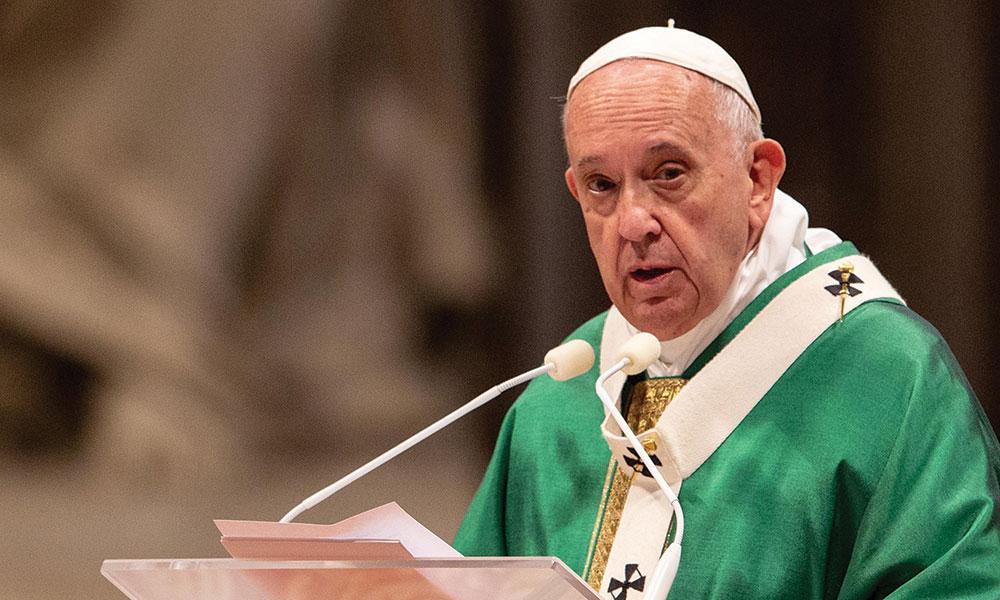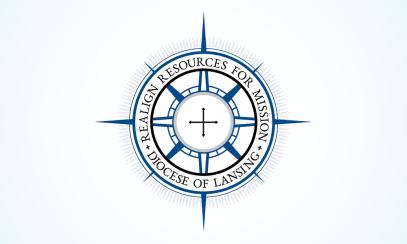
‘Synodal Process’ Began in October
On May 21, 2021, Pope Francis surprised the Church by announcing that the Synod of Bishops postponed due to the pandemic will be preceded by a synodal process that includes “listening to all of the baptized” in every local diocese before the bishops gather again in 2023.
On May 21, 2021, Pope Francis surprised the Church by announcing that the Synod of Bishops postponed due to the pandemic will be preceded by a synodal process that includes “listening to all of the baptized” in every local diocese before the bishops gather again in 2023.
In comments made to Vatican media, Cardinal Mario Grech, secretary-general of the Synod of Bishops, said the change “from an event into a process” was chosen because “the time was ripe for a wider participation of the people of God in a decision-making process that affects the whole Church and everyone in the Church.
“The Second Vatican Council teaches that the people of God participate in the prophetic office of Christ,” Cardinal Grech said. “Therefore, we must listen to the people of God, and this means going out to the local churches.”
Cardinal Grech explained, “The governing principle of this consultation of the people of God is contained in the ancient principle ‘that which touches upon all must be approved by all.’”
He added, “This is not about democracy or populism or anything like that. Rather, it is the Church that, as the people of God, a people who, by virtue of baptism, is an active subject in the life and mission of the Church.”
Cardinal Grech emphasized the importance of allowing everyone to have their voices heard. “God willing, one of the fruits of the synod is that we might all understand that a decision-making process in the Church always begins with listening, because only in this way can we understand how and where the Spirit wants to lead the Church.”
The theme of the Synod of Bishops concluding the synodal process is: “For a synodal Church: Communion, participation and mission.” It will convene in Rome in the fall of 2023.
The history of synods
According to Cardinal Mario Grech, secretary-general of the Synod of Bishops, “Synods were a typical practice of the first millennium Church, a practice that continued in the Orthodox Church. The theme of synodality weakened in ecclesial practice and ecclesiological reflection over the course of the second millennium in the Catholic Church.
“Pope (St.) Paul VI made it clear that the synod can be improved like any ecclesial body. It was a start. Without that beginning, we probably would not be here talking about synodality and the Church as constitutively synodal. The novelty in the Catholic Church is that synodality re-emerges as the crowning of a long process of doctrinal development.
“Synodality helps advance and clarify our understanding of Petrine primacy at Vatican I, collegiality at Vatican II and, today, through a progressive reception of conciliar ecclesiology, especially Chapter II of ‘Lumen Gentium’ on the people of God, expressing the way which synodality is a modality for everyone to participate in the journey of the Church.”
Timeline for the Synodal Process
- OCT. 9-10, 2021: Pope Francis opened the three-phase event from the Vatican.
- OCTOBER 2021-APRIL 2022: Phase 1: The synodal process is held in Catholic dioceses.
Each diocese undertakes consultation meetings with local Catholics and hosts its own “pre-synodal” gathering to produce a summary to submit to the national bishops’ conference.
In “a period of discernment,” the national conference reviews the texts received from the local dioceses and composes its own document to submit to the Vatican’s office for the Synod of Bishops. Vatican officials will create a first draft of the synod’s “instrumentum laboris,” or working document, from the submitted texts by September 2022.
- SEPTEMBER 2022-MARCH 2023: Phase 2: Bishops meet at the continental level.
In the second phase of the process, bishops gather on each continent to create texts about their discussions and submit them to the Vatican. A second draft of the “instrumentum” will be created from these texts and released by June 2023.
- OCTOBER 2023: Phase 3: The bishops meet in Rome for the final phase.
The theme of the final phase is: “For a synodal Church: Communion, participation and mission.”
To participate in the Spokane Diocesan Synod, ask your pastor about a parish listening session or participate virtually at www.dioceseofspokane.org/synod



